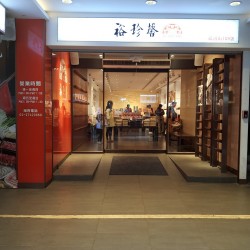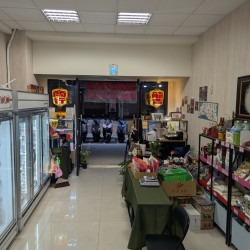Categories
-
Gender friendly

-
Convenient payment (Credit Card / EasyCard / 3rd Party payment)

-
Free WiFi

-
Muslim-friendly

-
Breastfeeding (lactation) room

Business hour
| Business hour | Sunday | Monday | Tuesday | Wednesday | Thursday | Friday | Saturday |
|---|---|---|---|---|---|---|---|
| Open | 17:00 | 17:00 | 17:00 | 17:00 | 17:00 | 17:00 | 17:00 |
| Close | 1:30 | 1:30 | 1:30 | 1:30 | 1:30 | 1:30 | 1:30 |
| Business hour | Open | Close |
|---|---|---|
| Sunday | 17:00 | 1:30 |
| Monday | 17:00 | 1:30 |
| Tuesday | 17:00 | 1:30 |
| Wednesday | 17:00 | 1:30 |
| Thursday | 17:00 | 1:30 |
| Friday | 17:00 | 1:30 |
| Saturday | 17:00 | 1:30 |
Description
Mi Family Chaozhou Style Congee
In innovative cuisine, Chaozhou is often referred to as “Mi.” Chaozhou congee is often thicker than normal congee, and can be referred to as thick congee.
Northern congee, the “oblivious congee” cooked in the Doomed to Oblivion show, is called “gehyinmi” in the Chaozhou dialect.
Chaozhou rice is also called “white mi.” This rice is used with other ingredients to produce different types of congee, such as vegetable congee, fish congee, chicken congee, shrimp congee, and crab congee. The congee, cooked with 16 types of Chinese herbs, became the daily staple of emperors in ancient times and came to be called “imperial congee.”
In innovative cuisine, Chaozhou is often referred to as “Mi.” Chaozhou congee is often thicker than normal congee, and can be referred to as thick congee.
Northern congee, the “oblivious congee” cooked in the Doomed to Oblivion show, is called “gehyinmi” in the Chaozhou dialect.
Chaozhou rice is also called “white mi.” This rice is used with other ingredients to produce different types of congee, such as vegetable congee, fish congee, chicken congee, shrimp congee, and crab congee. The congee, cooked with 16 types of Chinese herbs, became the daily staple of emperors in ancient times and came to be called “imperial congee.”
-
 Metro Station: 行天宮捷運站
Metro Station: 行天宮捷運站

 tw
tw en
en kr
kr jp
jp Add listing
Add listing

